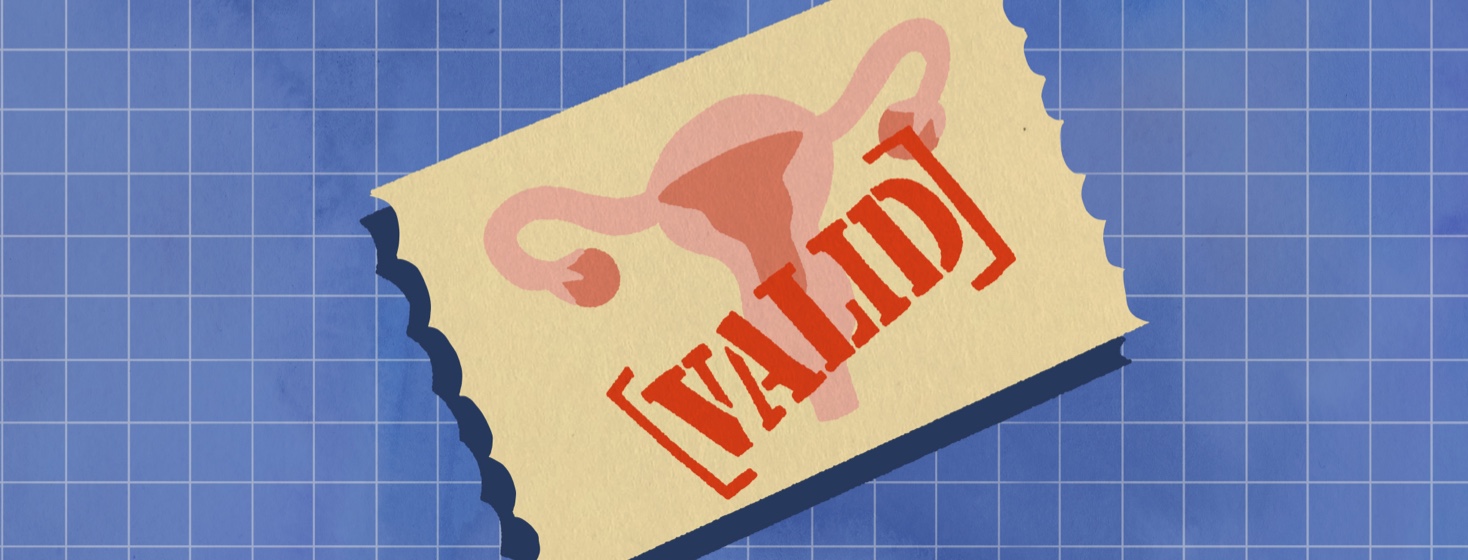Pain Doesn't Need Proof
“Congratulations! You’re not crazy.”
That’s what my excision specialist told me on the phone after my last surgery. He’d gotten the pathology results back, and one of the eight “suspicious” lesions he’d excised was, in fact, endometriosis.
Color me unsurprised. But this was validation and a small victory in my uphill battle with the endo-naive medical world.
Before I came to him, I’d tried for five desperate years to have someone surgically check for endo or scar tissue, something that should've been a lot easier. I'd already been diagnosed with endo, and recurrence is common with ablation, the kind of surgery I'd had years earlier.
My surgeon knew how frustrating this process had been for me, especially since my last OB/GYN refused surgery, saying my symptoms didn’t seem like they were related to endo. So these results pretty much meant I was right and she was wrong.
But his comment also made me stop and think: if he hadn’t found endo, would my pain be any less valid?
Endometriosis staging and pain
There are four stages of endometriosis. These stages refer to how extensive the disease is.
For example, I've been diagnosed with stage I disease. I've had endometriomas, some scar tissue, and minimal lesions on or around my ovaries and uterus.
My mom probably would've been stage IV. She struggled with infertility and had endo all over the place. It even destroyed one of her fallopian tubes.
Though, I can't be sure about her stage. Her surgery was back in the 70s, and she said her doctors didn't explain much to her
Staging doesn’t mean much of anything when it comes to pain. Mine has always been severe and sometimes debilitating.
I also have lots of bladder pain and digestion problems, where no endo has ever been found. My mom, on the other hand, never had a single menstrual cramp.
She didn't even know endo caused pain until it happened to me.
Before I went into surgery, the doctor who told me I wasn’t crazy wanted me to know that even if he found nothing, that doesn’t mean I don’t have pain. It would just mean he couldn't excise lesions to try to get rid of them.
Hoping the doctors find something
If your body hurts, it hurts. You don't need a piece of lab-confirmed endo to tell you that.
But oddly, endometriosis is something I hoped I'd test positive for. I've been relieved after each surgery when my doctors have found endometriosis, along with lots of scar tissue.
I know it's odd to hope for a lifelong condition with no cure. One that causes tons of pain that we don't know how to treat properly. Having evidence of endometriosis meant I finally had a reason for my pain.
I wanted to take my lab results and shove them in the face of everyone who’d ever dismissed me. It made me wonder how people would've treated me if the results came back negative.
Doubting your own pain
Too often, we feel we have to prove why we have pain. To friends, family, doctors, teachers, bosses, the list goes on.
It'd be much easier if people take our word for it. The truth is no one gets to tell us what's ok to feel, especially since the medical community has a loose understanding of endometriosis, at best.
They don’t know what causes it or how to cure it. Many surgeons don't even know how to find it or remove it effectively.
They certainly don’t know why some people have more pain than others. They don’t even know where the pain comes from.
There's a growing understanding that it has something to do with how nerves, muscles, and inflammation affect each other.
It's normal to worry that your doctor will go searching for endo only to find nothing. That shouldn't keep you from seeking treatment.
Your pain is valid. It doesn't matter what they find.

Join the conversation